Lidozone Ear Drops 10 ml
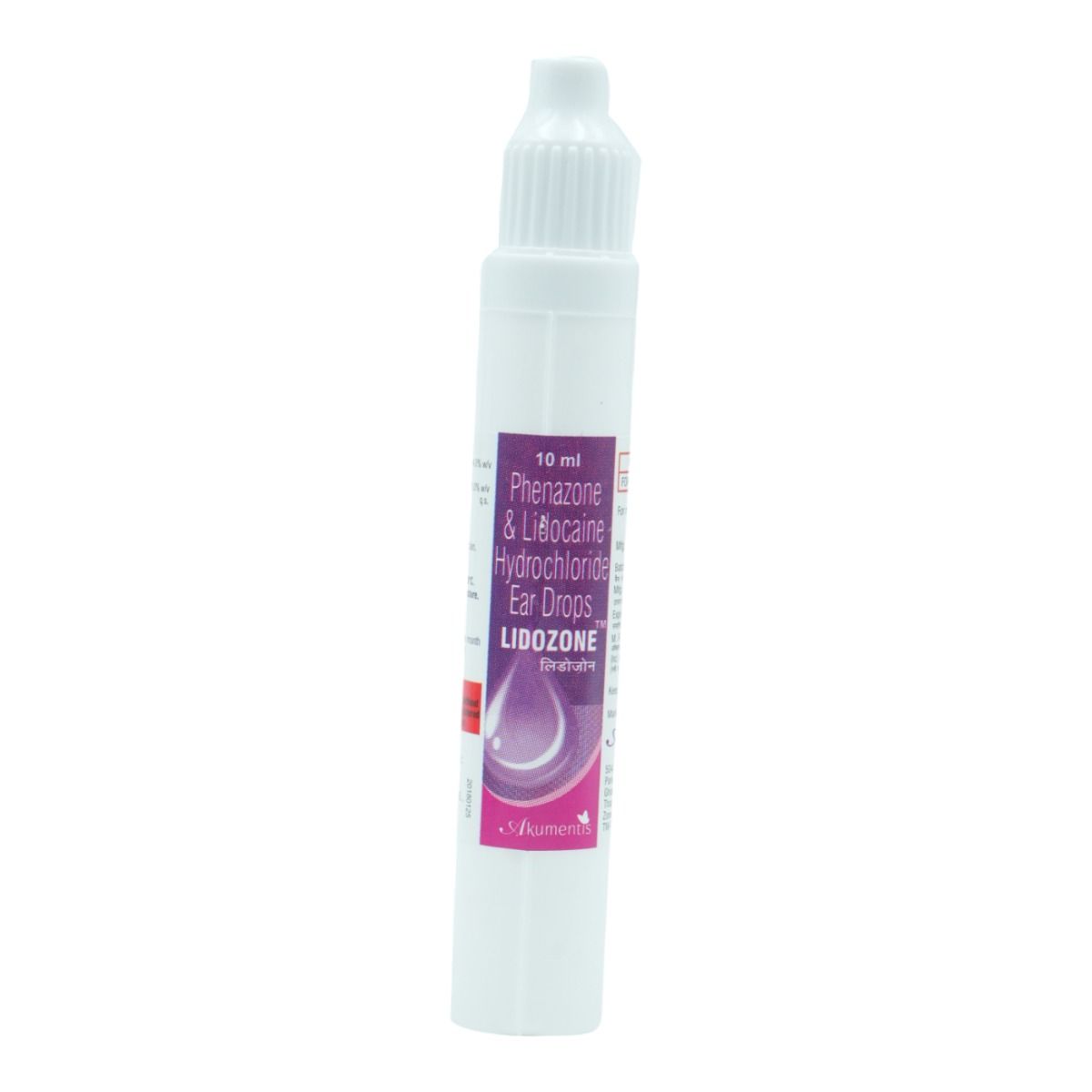
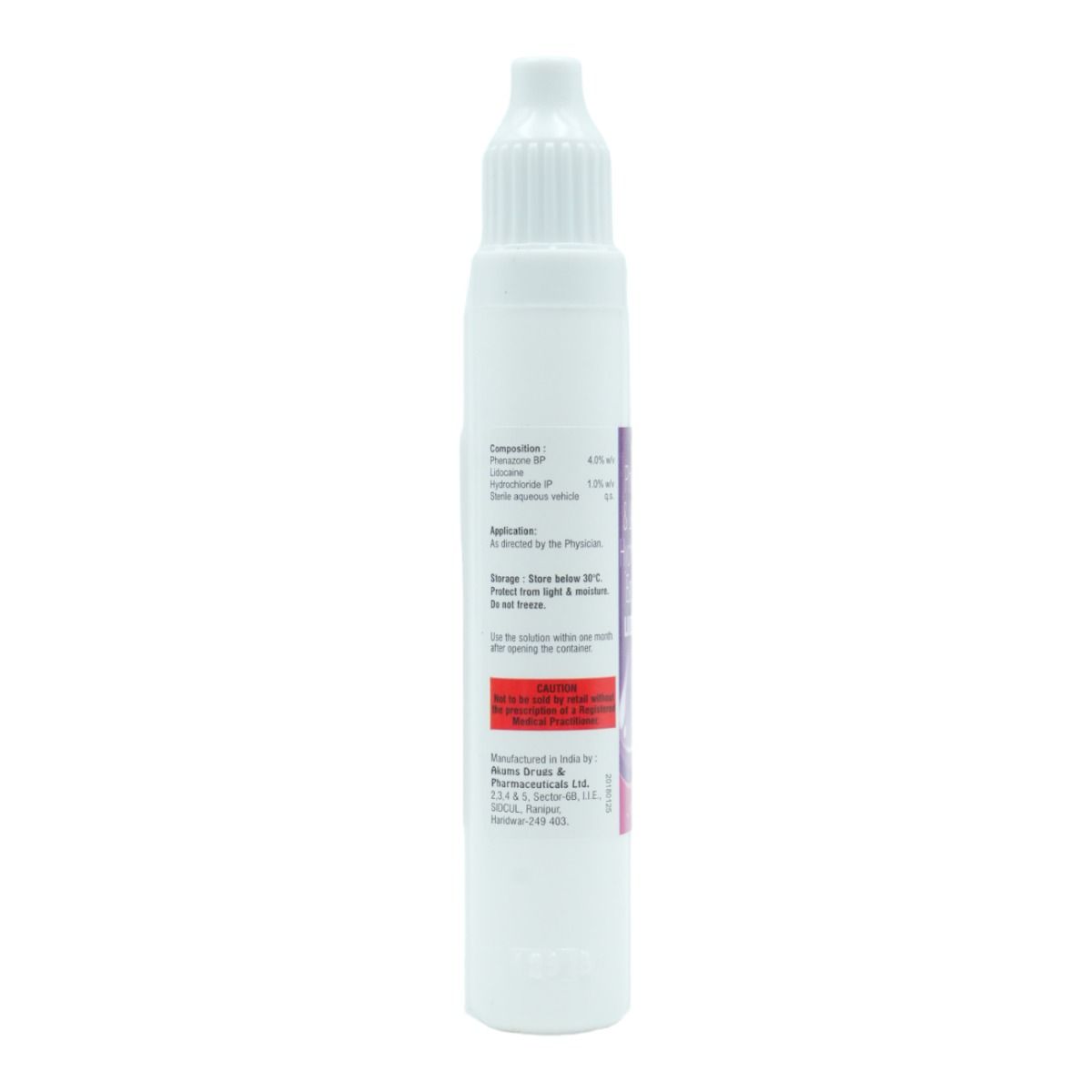
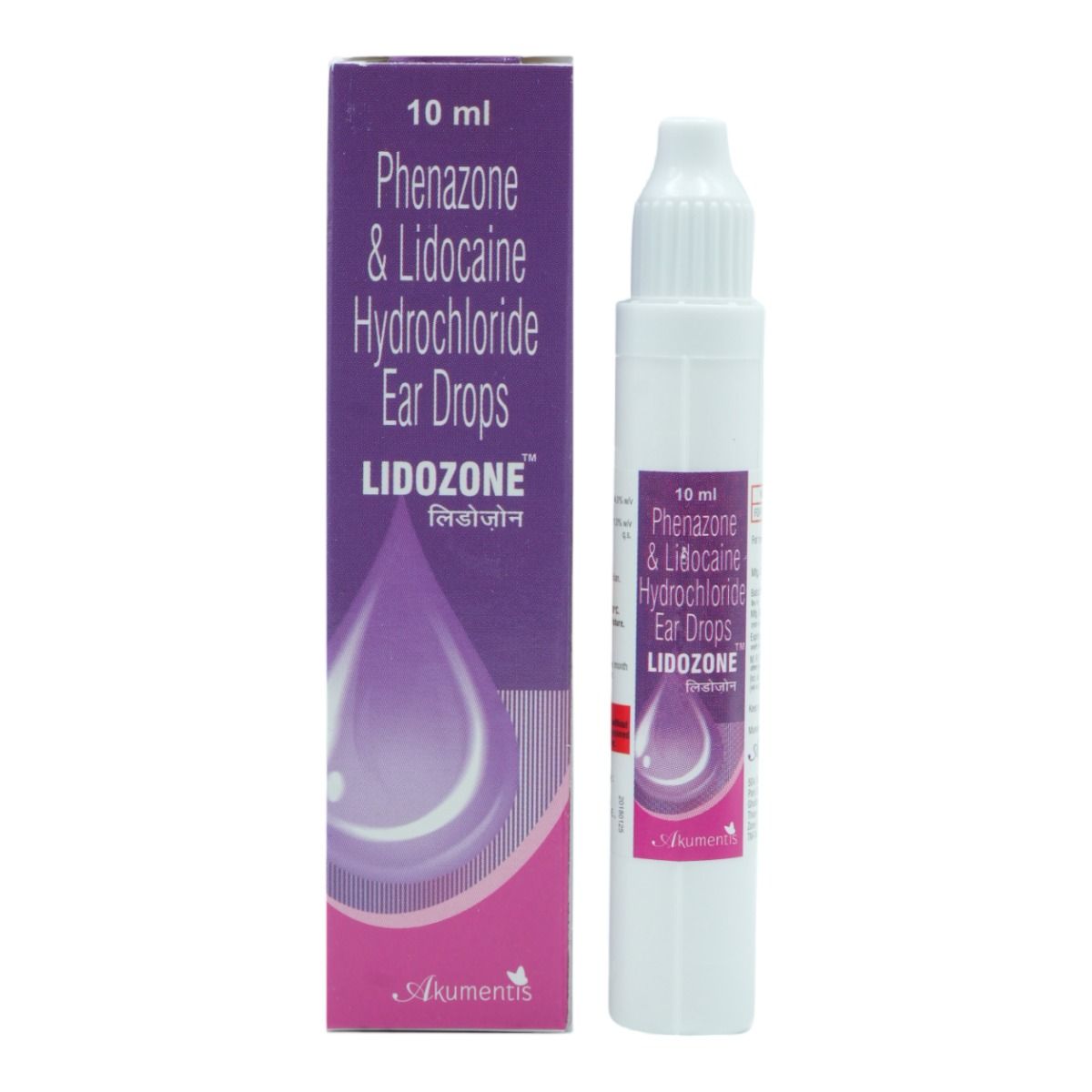
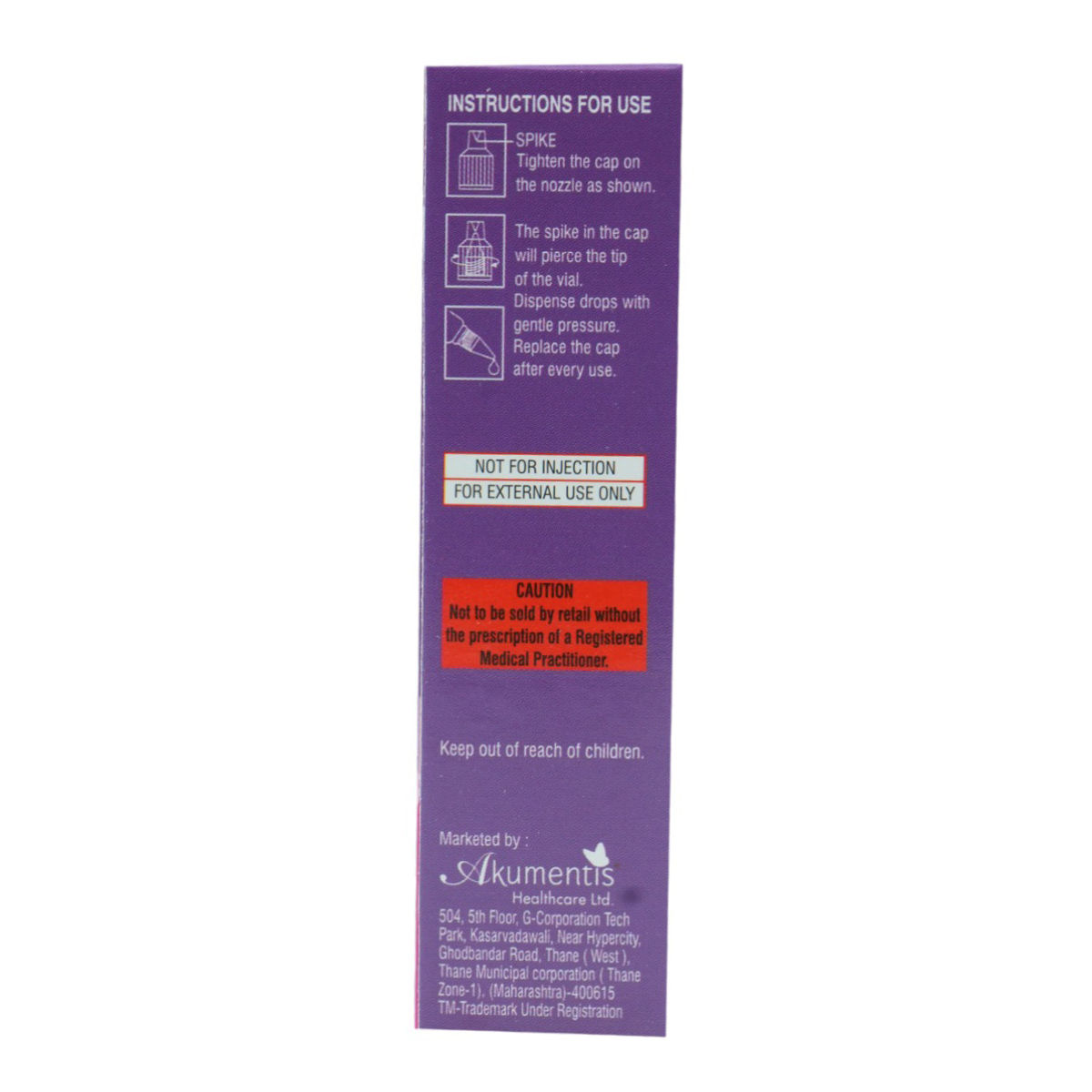
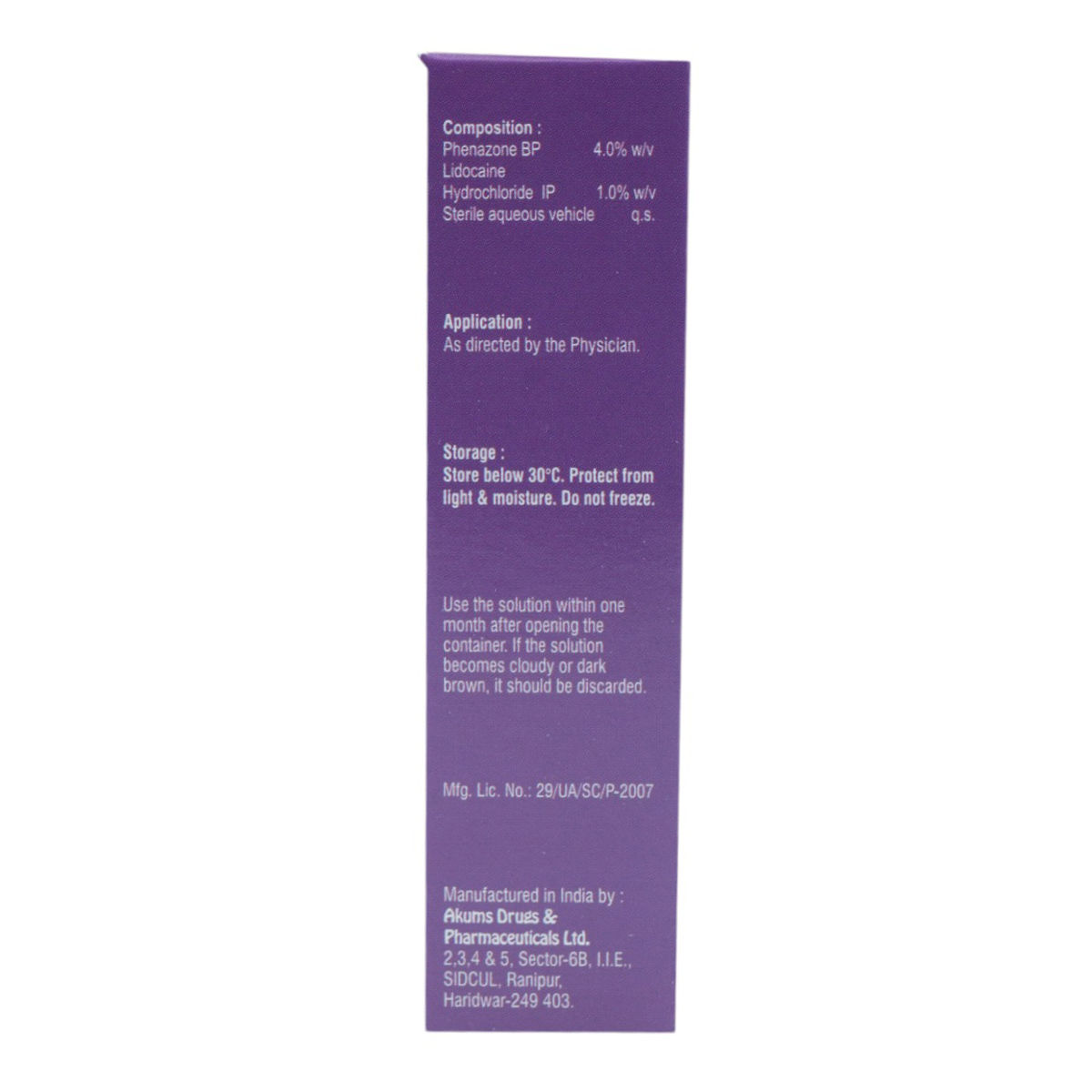
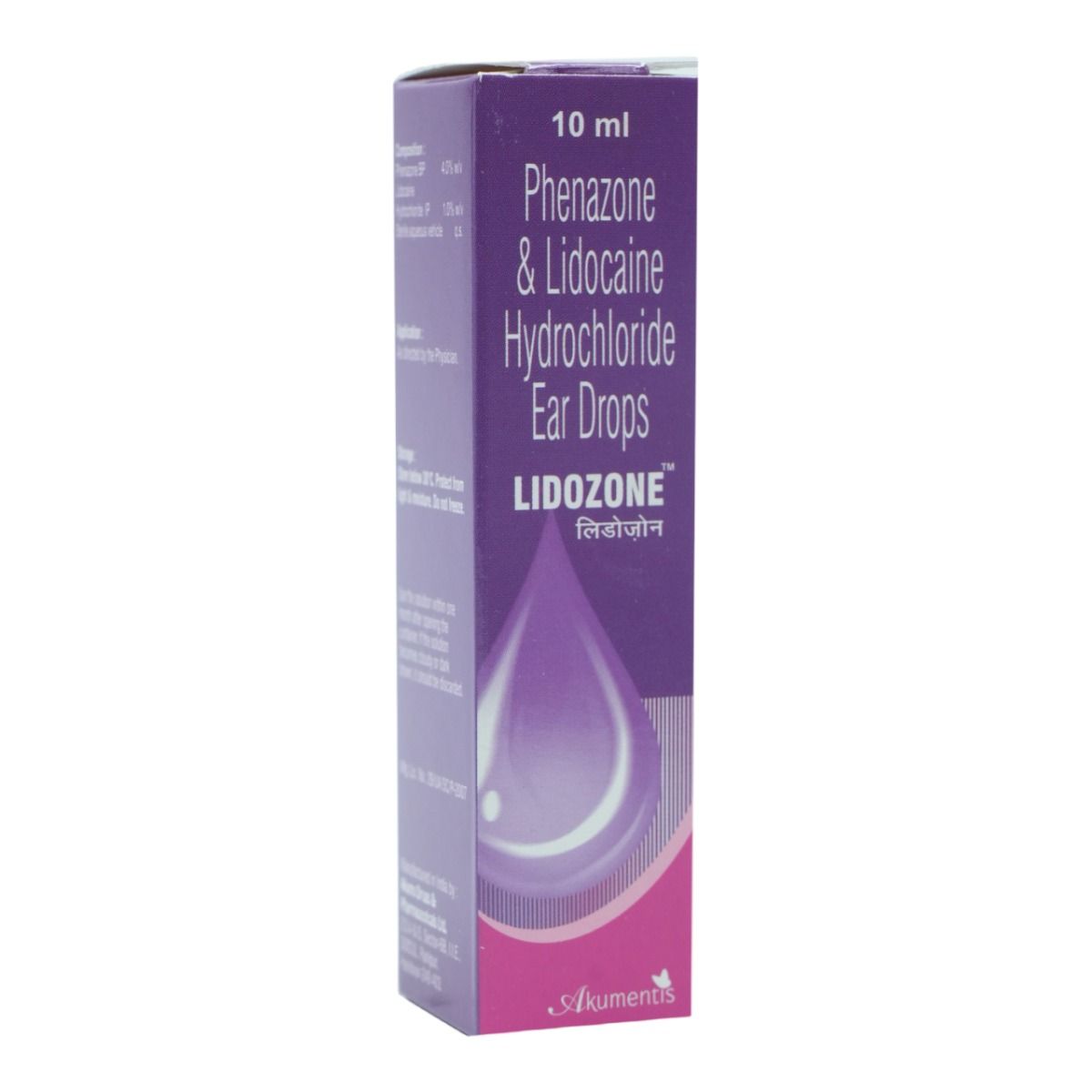

₹127.4*
MRP ₹141.5
10% off
₹120.27*
MRP ₹141.5
15% CB
₹21.23 cashback(15%)
Free Delivery
With Circle membership
(Inclusive of all Taxes)
This offer price is valid on orders above ₹800. Apply coupon PHARMA10/PHARMA18 (excluding restricted items)
Know Your Delivery Time
Provide Delivery Location
Selected Pack Size:10 ml
10 ml ₹127.4
(₹12.74 / 1 ml)
In Stock
5ml ₹91.8
(----)
In Stock
Available Offers
 Prescription drug
Prescription drugWhats That

Secure Payment

India's Most Trusted Pharmacy

Genuine Products
Composition :
Manufacturer/Marketer :
Consume Type :
Return Policy :
Expires on or after :
About Lidozone Ear Drops
Lidozone Ear Drops belongs to the group of medications called ‘otic agents’ used in the symptomatic treatment of otitis media. Otitis media is the inflammation of the middle ear or middle ear infections. It causes ear pain and fever. It is commonly seen in young children.
Lidozone Ear Drops contains Lidocaine and Phenazone. Lidocaine is a local anesthetic that is used to numb pain. It acts by blocking the pain signals from reaching the brain, thereby decreasing pain. Phenazone is an analgesic (pain killer) and anti-inflammatory agent. It reduces the production of chemical substances that cause pain and inflammation. It also potentiates the action of Lidocaine.
You should use this medicine exactly as prescribed by the doctor. Common side-effects with Lidozone Ear Drops like, local allergic reactions (itching, maculopapular rash), auditory canal hyperaemia (increase of blood flow). However, if you experience any side-effects, inform your doctor immediately.
It is not recommended to use Lidozone Ear Drops if you are allergic to any contents of it. It should not be used in people who have tympanic perforation (perforated or burst eardrum), even if it is due to surgical manipulation. Before using Lidozone Ear Drops, inform your doctor if you are pregnant or breastfeeding. Lidozone Ear Drops should be cautiously used with a doctor's advice in children and elderly people. Lidozone Ear Drops may not interact with alcohol and may not affect your ability to drive; however please seek medical advice.
Uses of Lidozone Ear Drops
Directions for Use
Medicinal Benefits
Lidozone Ear Drops is used to reduce ear pain and inflammation in patients with middle ear infections. This medicine is used to treat acute otitis media (inflammation of the middle ear), middle ear inflammation due to flu and barotraumatic damage of the middle ear (due to rapid changes in pressure in the ear). It contains Lidocaine and Phenazone. Lidocaine reduces pain, whereas Phenazone helps to reduce inflammation and also increases the effectiveness of lidocaine.
How Lidozone Ear Drops Works
Storage
Side Effects of Lidozone Ear Drops
- Local allergic reactions (itching, maculopapular rash)
- Auditory canal hyperaemia (increase of blood flow)
What if I have taken an overdose of Lidozone Ear Drops
Drug Warnings
Lidozone Ear Drops should not be used in patients with perforated eardrums, even if it is due to surgical manipulation. Symptoms of a perforated eardrum are ear pain, vertigo, ringing or buzzing sensation in the ear, discharge of fluid or blood from the ear, and sudden hearing loss. Your doctor usually checks if the eardrum is intact before prescribing this medicine. While using Lidozone Ear Drops, inform your doctor if you notice any discharge from the ear and stop the medicine immediately. Before using Lidozone Ear Drops, inform your doctor if you are pregnant or breastfeeding. Lidozone Ear Drops should be cautiously used with a doctor's advice in children and elderly people. Lidozone Ear Drops may not interact with alcohol and may not affect your ability to drive; however, please seek medical advice.
Drug-Drug Interactions
Drug-Drug Interactions
Login/Sign Up
Drug-Food Interactions
Drug-Food Interactions
Login/Sign Up
Diet & Lifestyle Advise
- Manage stress, eat healthily, drink plenty of water, exercise regularly and get plenty of sleep.
- Keep your ear clean and dry.
- Avoid getting water in your ears while bathing, showering or swimming while treating an ear infection.
- Quit smoking.
- Infants should be held in an upright angle while bottle feeding as feeding in the horizontal position may cause the milk to flow back into the eustachian tubes.
- Prevent cold as most ear infections in children begin with a cold.
Habit Forming
Therapeutic Class
Lidozone Ear Drops Substitute

Lidozone Ear Drops 5ml
by AYUR
₹18.36per tabletOtogon Ear Drop 10 ml
by Others
₹19.44per tabletLidopax Ear Drops 5 ml
by Others
₹15.84per tabletLidozole Ear Drops 5 ml
by Others
₹17.82per tablet
Product Substitutes
Alcohol
Safe if prescribed
Lidozone Ear Drops may not interact with alcohol.
Pregnancy
Caution
Lidozone Ear Drops should be used with caution in pregnant women. So, please consult a doctor before using this medicine.
Breast Feeding
Caution
Lidozone Ear Drops should be used with caution in breastfeeding mothers. So, please consult a doctor before using this medicine.
Driving
Safe if prescribed
Lidozone Ear Drops may not affect your ability to drive.
Liver
Safe if prescribed
Lidozone Ear Drops is probably safe when used in patients with liver diseases.
Kidney
Safe if prescribed
Lidozone Ear Drops is probably safe when used in patients with kidney diseases.
Children
Caution
Lidozone Ear Drops should be used with caution in infants. In children above 1 year of age, it is probably safe when used if prescribed by a child specialist.
FAQs
Country of origin
Manufacturer/Marketer address
Disclaimer
Author Details
We provide you with authentic, trustworthy and relevant information


















